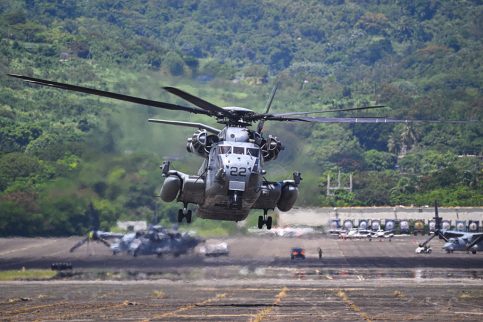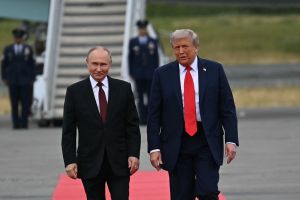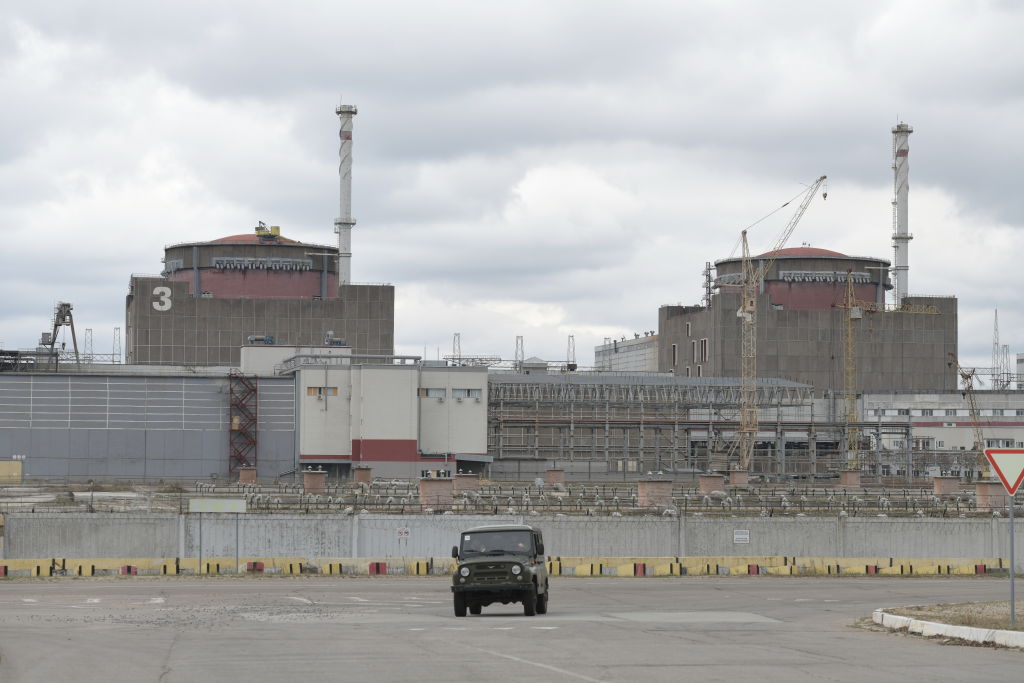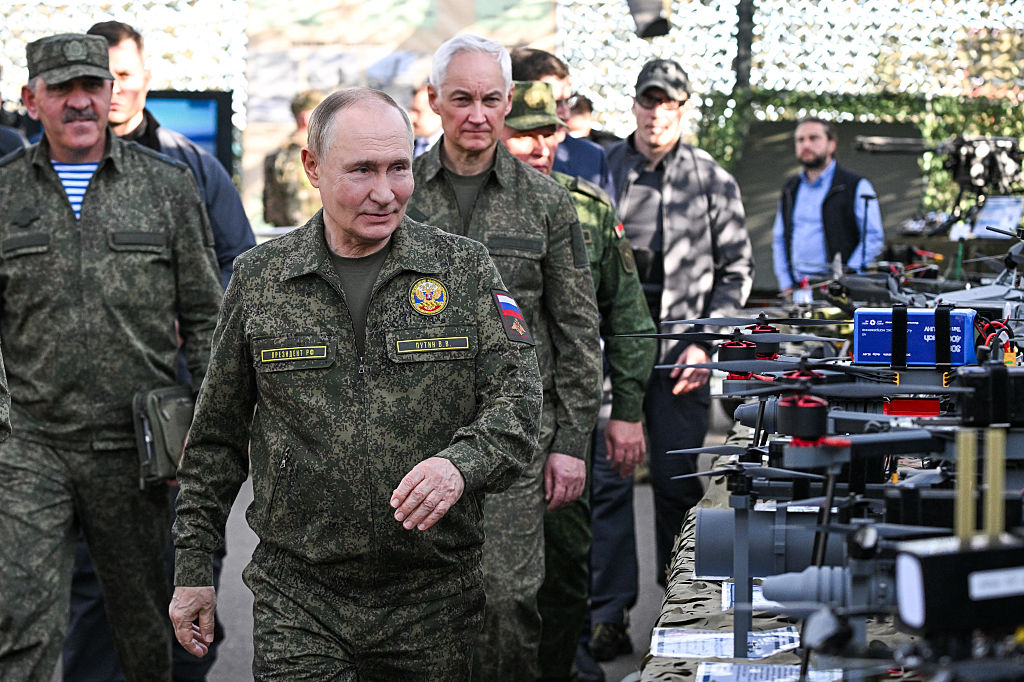As the US Navy remains primed for action in the Southern Caribbean, Venezuelan dictator Nicolás Maduro prepares for what could be an American attempt to remove him. And as President Trump alternates between calling Maduro on the phone and authorizing air strikes, a bevy of misinformation is being peddled by public figures with an agenda. There are so many claims and counter-claims on the air waves right now that it’s difficult to separate fact from fiction.
A sizable chunk of this disinformation is of course being sold by Maduro himself, a man who has learned from his predecessor and mentor, the late Hugo Chávez, that it’s easier to blame the United States for all of your problems than own up to your own catastrophic policy errors. Maduro’s biggest fraud occurred in the summer of 2024, when he lost the Venezuelan presidential election to former diplomat Edmundo González Urrutia in astounding fashion but claimed victory anyway.
Maduro, however, is hardly the only one throwing falsehoods into the air. The Venezuelan opposition movement led by Nobel Peace Prize laureate María Corina Machado and a vocal group of far-right Venezuelan exiles in Miami are just as guilty. Machado, whose entire career has been devoted to ending the Chavismo politics that have ruled Venezuela for a quarter-century, has given countless interviews in the American press about how Maduro rigged the 2020 US presidential election, unleashed the Tren de Aragua gang and directed a massive criminal organization dubbed the Cartel de los Soles, with the express purpose of weakening America by turning its citizens into drug addicts. “Everybody knows that Venezuela is today the main channel of cocaine,” Machado told CNN last month, “and that this is a business that has been run by Maduro.”
Machado is hardly the only one making claims designed to push the Trump administration into military action. Emmanuel Rincón, a writer and activist, alleged on Fox News this week that Maduro declared war on the United States long ago and is “one of the main architects” of the drug epidemic in the US Ryan Berg of the Center for Strategic and International Studies went on the same network and called Maduro a dire threat who was turning Venezuela into a Russian and Chinese colony only 600 miles from the US mainland.
It also sounds quite scary until you turn off the noise and start dealing with the facts. The truth is that proponents of regime change are throwing spaghetti at the wall to see what sticks. Their aim is to inflate the threat, not educate the public.
Take Maduro’s involvement in the drug trade and his supposed control of Cartel de los Soles as a prime example. Yes, Maduro’s regime is implicated in drug smuggling. We know this because several high-profile regime figures, including Maduro himself, have been indicted by the US Justice Department on various drug-related charges. Maduro is currently wanted by the FBI and has a $50 million bounty for information leading to his capture. Some senior Venezuelan officials and Maduro family members have been implicated in cocaine trafficking as well; two of Maduro’s nephews were prosecuted for cocaine distribution in 2017 and sentenced to 18 years in prison (they were later released in a prisoner exchange).
But the notion that Maduro is giving orders to the region’s drug trafficking networks gives the former bus driver and union leader far too much credit. Indeed, the so-called Cartel of the Sons that Maduro supposedly leads isn’t even a cartel in the traditional sense of the word; it has no top-down structure or hierarchy of any kind. Command-and-control is lacking. Those who have studied drug trafficking for decades essentially refer to it as a loose, relatively laissez-faire connection between Colombian cocaine traffickers and Venezuelan army officers, who look the other way and take a cut of the drug shipments transiting Venezuelan territory for export to Europe and the United States. While this morally disturbing and certainly criminal, it’s not exactly a shocking development: corrupt politicians and officers in Latin America have participated in similar arrangements for decades. And the phenomenon is not exclusive to Venezuela – former Honduran President Juan Orlando Hernández, who was feted by the first Trump administration as a major partner in Central America, ran a narco-state himself. For Maduro, dabbling in the drug business is likely less about attacking the United States as the Trump administration claims and more about giving his support base the opportunity to access criminal rents to get rich, thereby binding their economic fortunes to his political longevity. In other words, it’s a survival strategy, not a grand conspiracy.
Another key question should be put into perspective: is Venezuela the central node in the drug trade? Listen to Machado and her supporters and you could easily think that cutting Maduro down to size would magically win the war on drugs. But this is laughable. According to the Drug Enforcement Administration’s own statistics, only 8 percent of the cocaine heading to the United States transits the so-called Caribbean Corridor, where Venezuela is located. The vast majority, 74 percent, is shipped from Ecuador and Colombia’s Pacific coast. The 2025 DEA drug threat assessment report didn’t even bother to mention Venezuela in the context of drug trafficking, which is a curious omission for an administration that frequently describes Maduro’s Venezuela as the epicenter of the narco world.
Moreover, one of Machado’s biggest selling points is her contention that Venezuela will inevitably turn into a democracy once Maduro’s regime is deposed. She insists there is a 100-day plan to take over the reins of government and guide Venezuela through a political transition. Freedom of speech, free-markets, elections, justice and accountability will apparently replace repression and criminality. It all sounds pretty good.
There’s just one problem: Machado’s camp hasn’t bothered to provide any details whatsoever about how they intend to accomplish this utopian objective. There are far more questions than answers. How will they re-build the institutions that Maduro has gutted over the last 12 years? How will they convince the Venezuelan army leadership that its interests are best served switching their support to a new government? What incentives are they willing to offer? Why are they so confident that the Venezuelan generals who made a killing under Maduro will choose cooperation over resistance, particularly when Machado continues to declare that anyone who perpetrated crimes will be prosecuted to the fullest extent? And what about the armed criminal groups and paramilitary pro-Maduro forces whose number are even greater than the regular Venezuelan military?
The Venezuela policy debate won’t be going away anytime soon. Unfortunately, as the days go by, emotion, ideology and political agendas are displacing reality. And that’s a recipe for terrible policy.


























Leave a Reply